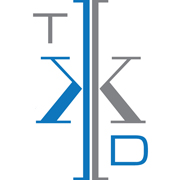Start Doing Bookkeeping Right From the Beginning of Your Business
When you’re just starting out in the world of business, it is often easy to become overwhelmed by the relentless stream of paperwork flooding into your office. For many Calgary startups, the compromise between bringing in customers and balancing the books often proves too much and their fledgling company fails to gain any momentum.
In order to avoid this fate, you need to have a clear and consistent plan for tackling your finances. Staying organised and controlled could give your business a priceless edge. So where do you begin?
Start Record Keeping Immediately
There is nothing worse than scrabbling around for missing receipts on the eve of the tax deadline. Since the Canada Revenue Agency (CRA) provides businesses with six months to complete their tax returns, it’s really not worth leaving it all until the last minute. Routine bookkeeping can save you immeasurable time in the future. For most small businesses, filing receipts and invoices averages only a half an hour a week.
Separate Personal And Professional Accounts
Your company will be taxed on everything you earn, less your expenses that were business related. Claiming deductions on office equipment, travel or staff costs is easy, but only if you know exactly how much was spent on each. If you’re filing properly, you should have all your receipts correctly filed. But comparing each of them in turn to the transactions in your account is a long and arduous process and leaves you prone to errors in accounting. That’s why you need a professional bookkeeper.
If you fail to distinguish between personal assets (cars, houses, clothes) and business expenses you could receive a considerable fine from the CRA. By opening up a separate chequing account for your business, you know that money spent from it can be considered business expenses (if backed up with proper receipts) and you won’t need to trawl through each individual purchase to prove this.
Budget For Tax
Once you’ve deducted your expenses from your income, the remaining lump sum becomes your taxable profit. For most businesses, around 20% of this money will be owed as corporate taxes (perhaps higher if you have a sole proprietorship), so you need to make sure there is enough left in your budget at the end of the year to cover this expense.
If you’re a sole proprietor then you won’t need to pay corporate tax. The net income will be your personal income (plus anything you may have earned through employment).
For incorporated companies this is an obligatory payment. It’s easy to lose track of just how much you owe, so putting aside 20% of your earnings each month will mean there is always cash reserved for this purpose. We recommend you open a second bank account to squirrel away these funds for the inevitable payout to the CRA. Treat this a ‘spent money.’ No touching!
The same for the Goods and Services Tax (GST). If your gross income from sales is over $30,000 per year then you must obtain a GST number and collect this tax. This applies to both sole proprietorships and corporations. Your invoices (if applicable) must display your GST number.
You will regularly (i.e. monthly, quarterly or annually) file a statement with the CRA to tell them how much you need to remit. The amount you have to remit to the CRA is the total GST collected from your customers less the amount you paid out in the course of doing business (the latter being called the Input Tax Credits—ITCs), for the given period.
If you have no or low sales and spent a lot, and thus paid a lot of GST, then you will be entitled to a GST refund from the CRA.
There is a deadline to both do your GST filing plus remit the amount you owe. Lateness means financial penalties. You MUST be up to date with your company’s bookkeeping to do this correctly.
Understand The Benefits Of Going Limited
A lot of startups are born from ideas discussed over coffee or around the kitchen table. Operating as a sole proprietor is fine, until you move out of the house and into a more permanent location. Once your company begins expanding, hiring employees and housing valuable assets you run the risk of losing larger and larger sums of money.
Corporation tax and associated accounting needs is a small price to pay for increased business protection. By registering as a limited company, you ensure your personal finances remain unaffected should your business go under. Most people invest their life and soul in a new business, so forming a limited company (i.e. a corporation) could give you the peace of mind you deserve.
Further, your proposals and marketing are also more likely to be taken seriously by investors and suppliers if you are a limited company, as limited companies are seen as a safer option when compared to sole proprietors. Always seek expert advice if you are unsure whether going limited is the right option for your business.
___________________________
This article is adapted from the original by Chris Weston, which can be found by clicking here.











